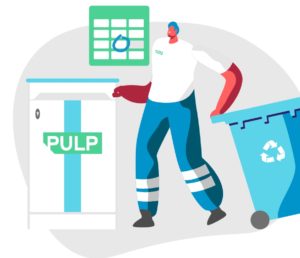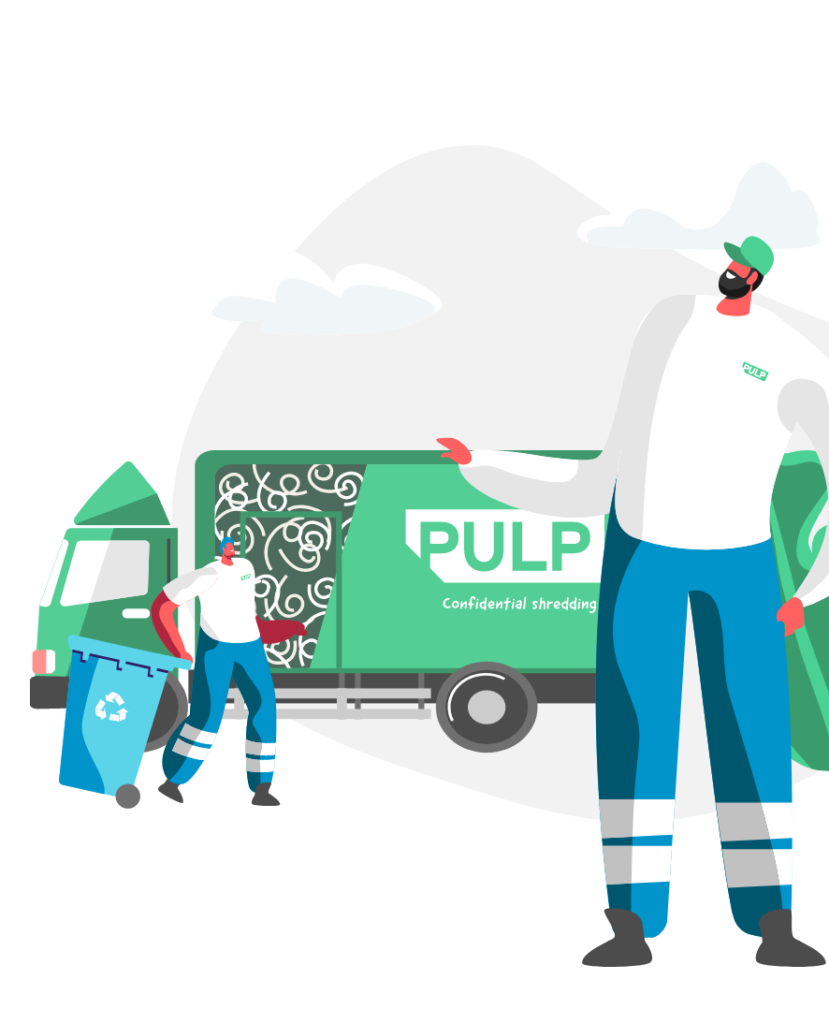
For a lot of small to medium sized businesses, their instincts are to shred in-house. It seems like the simplest, most cost-effective decision. However, many come to realise that shredding companies are the best option. There are a wide range of reasons for this, from regulatory compliance to simple organisation. Even so, making the switch is a big step and you likely have questions about the process. In this week’s blog, we’ve identified 7 shredding FAQs along with answers and more detail. This will make it easier to make a decision.
1. What should I look for in a shredding company?
There are quite a few shredding companies out there. It can be difficult to decide which one to go with. With the goal of narrowing down the field, what qualities make a good shredding company? First and foremost, they will have an excellent track record of customer satisfaction. One of the quickest and most effective means of assessing a shredding company, or any company for that matter, is to check out customer reviews. At Pulp, we’re very proud of our 4.8 star Google rating, and you can find more testimonials from our clients on our home page.
Secondly, you should check out a prospective shredding company’s qualifications. For example, the Pulp staff that handle your confidential documents have all been Garda vetted. In addition, we’re one of only 6 NAID AAA certified mobile shredders in Europe. That’s the highest level of certification obtainable in relation to thorough document destruction.
Thirdly, a shredding company must be environmentally sustainable. You should ensure that effective recycling is at the heart of your shredding company’s ethos. At Pulp, we estimate that we’ve saved over 400,000 trees since we opened for business, all through recycling 100% of what we shred.
2. How can I ensure the security of my documents?
One of the most important reasons to shred is document security. This point comes up often in shredding FAQs and it’s important to have a good understanding of it. The good news is that once you have taken the step of implementing a shredding policy, even in-house, your documents are immeasurably safer. However, there are other steps you can take.
Firstly, use a high quality shredder. Shredders differ hugely in quality. A standard office shredder merely tears documents into strips, whereas a Pulp shredder destroys documents completely past the point of recovery. As mentioned above, responsible shredding companies will have the certification to match their higher quality services.
Secondly, shred as frequently as possible. We recommend a “shred-all” policy for all offices. This means you should dispose of all documents as soon as they become redundant. This reduces the amount of time that confidential information is exposed and vulnerable. It’s important to have a thorough understanding of retention periods for different types of documents in your industry.
3. What happens to shredded documents?
There is a two-part answer to this shredding FAQ. Firstly, unlike with a conventional shredder, Pulp shredders destroy your documents completely by effectively grinding them into, like our name says, pulp. The second part of the answer is that the material is all recycled. There are countless ways this recycled material is put to use. It can be turned back into paper, or become cardboard, toilet paper, tissue paper, and anything else in between. Recycling this way prevents trees from being cut down unnecessarily, as well as many other forms of pollution that occur as a result.
4. What documents should be shredded?
Earlier, we referred to the idea of the “shred-all” policy. Of course, this isn’t meant to be taken in a strictly literal sense. There are all sorts of documents that businesses are legally obliged to retain indefinitely. For example, you should never destroy financial statements, tax returns, and mortgages. For every type of document that doesn’t need to be held permanently, the question isn’t “what” so much as “when”. After a document has reached the end of its mandatory retention period, the best course is to shred it immediately.
5. What are the consequences of not shredding documents?
There are many consequences of not shredding documents, from the inconvenient to the legally disastrous. First of all, your office will be messier and there will be more clutter around. Every company processes reams and reams of paperwork, even now that we’ve largely moved over to computers. Without shredding, there is no reliable system to keep on top of all this material. You can’t simply deposit your office’s paper into a recycling bin for a myriad of reasons we’ve discussed in another blog.
Another consequence of not shredding is that you open yourself and your company up to the possibility of identity theft and fraud. All of the confidential information that we shred could be put to nefarious purposes if it ends up in the wrong hands, from applying to loans in your company’s name to accessing bank accounts. Shredding is the most reliable way to protect yourself from this.
Because of the seriousness of these crimes, the Data Protection Commission (DPC) monitors the way companies handle confidential information. Even if no information is stolen or leaked, you can face fines, audits, and other penalties for failing to adhere to their standards. A coherent shredding policy is a massive part of this.
6. How can a shredding company help me with regulatory compliance?
This is one of the most important shredding FAQs to understand, as regulatory compliance is absolutely essential for businesses. There are a number of ways a shredding company can help you in this regard. Crucially, when you use a properly qualified shredding provider, you can be sure that your confidential information is disposed of responsibly and in a manner that ticks all of the legal boxes.
In addition to this, Pulp will issue you with a certificate of destruction which acts as an official record of the act. This can be important in the event of an audit in which you may be required to prove that information was handled or destroyed properly.
7. What are the benefits of using a shredding company?
The last of these shredding FAQs has hopefully been largely answered by this point. The benefits of working with a shredding company have already come up in some of the other answers. To summarise, here are our top benefits of working with Pulp:
- It saves you and your employees time, especially when figuring out how to shred large amounts of paper. Shredding can be a long, tedious process. Leaving it in our hands keeps you free for other important tasks.
- It keeps your office clean and orderly. Sheets of paper have a way of building up and cluttering workspaces with ease. Regular shredding equals a productive working environment.
- Shredding with Pulp protects your confidential information, as well as that of your employees and clients.
- Unlike in-house shredding, working with a shredding company guarantees regulatory compliance and ensures you won’t be faced with fines and other penalties.
Wrapping Up
We hope that answering these 7 shredding FAQs will help you make a decision about bringing in a shredding company. On top of all the other benefits, we strive to provide excellent customer service and fair prices. To find out more, or to start shredding today, don’t hesitate to get in touch with our offices.





